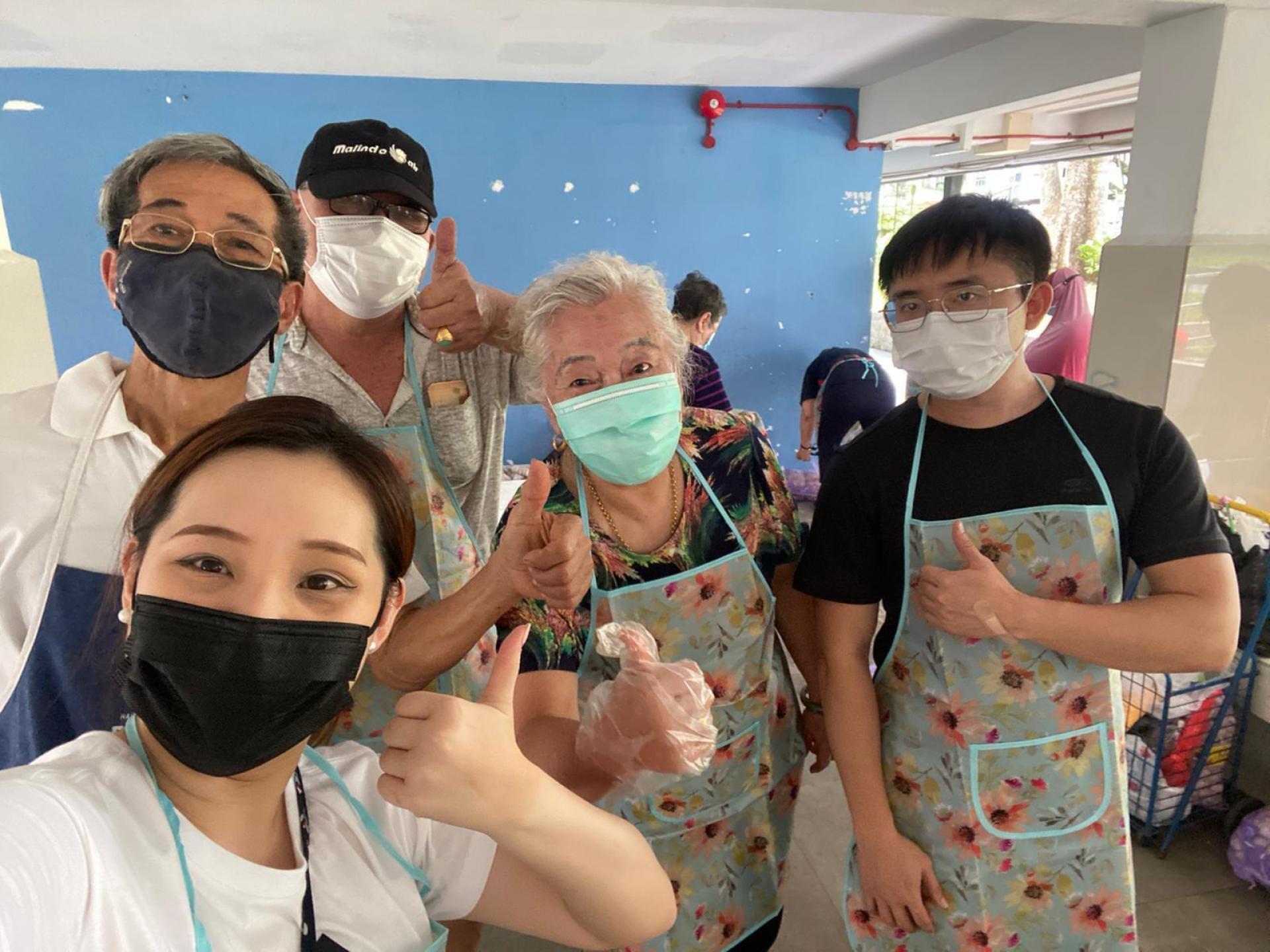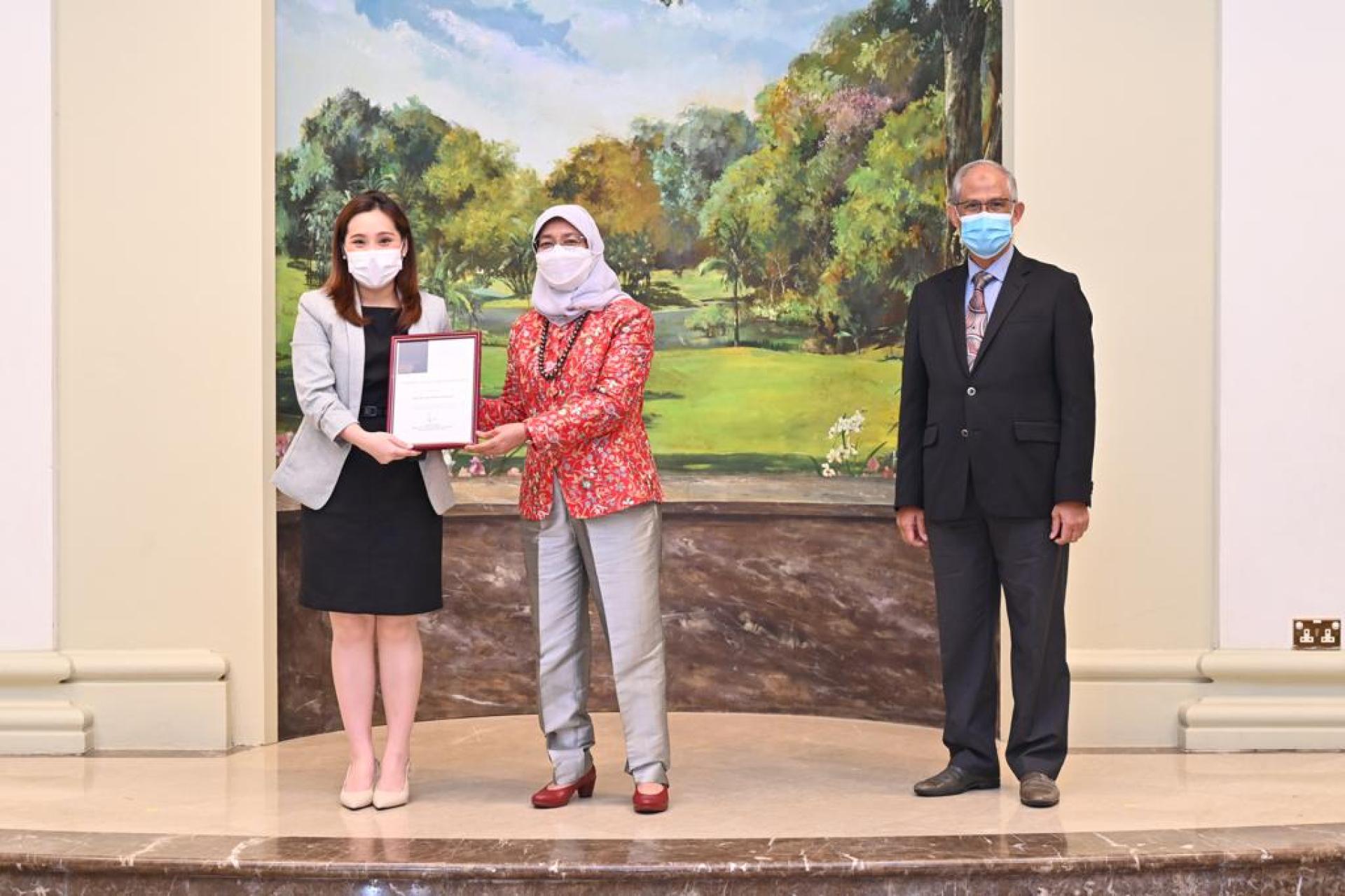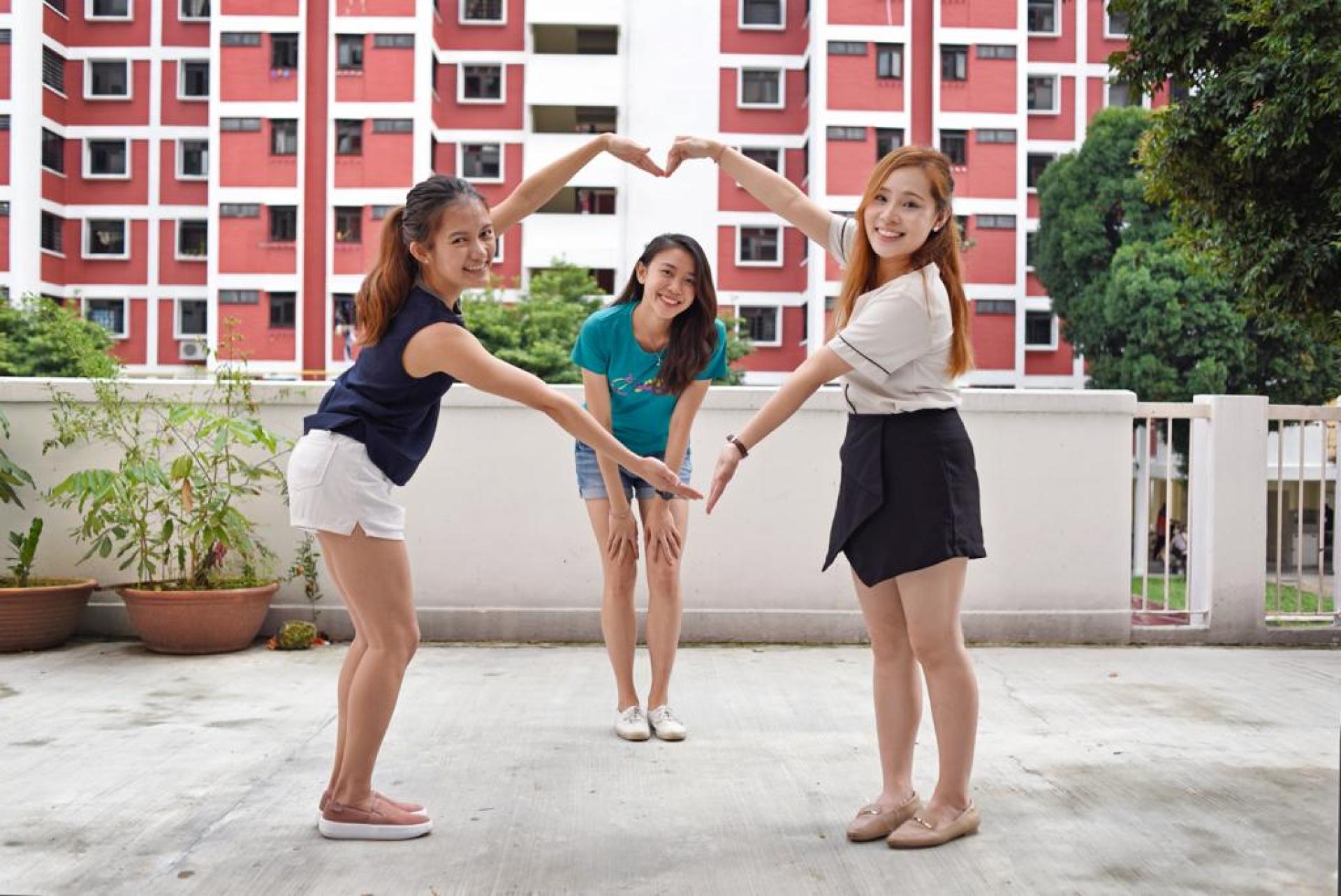Meet Michelle Lau Wei Teng, medical social worker at Dover Park Hospice and recipient of the Promising Social Worker Award 2021, granted by the Singapore Association of Social Workers (SASW). Despite being relatively new to the field, Michelle has nevertheless made meaningful contributions to the community through her innovative efforts to support and bring people together during the pandemic. She talks to NG WENG LIN about her inspirations, her heart for the elderly, and the value of empathy and connection.
What led you to become a social worker?
Working with the elderly has always been something very close to my heart, ever since I was young. My first visit to an elderly home was during my time in Primary School, and even then I remembered wishing that people would change their perceptions and attitudes towards ageing and our elderly community. I have always strongly believed that despite our age boundaries, physical limitations and different life circumstances, every individual has his/her own inherent strengths, tenacities and resources to cope with life’s challenges. I am grateful that social work has taught me valuable skill sets and provided me with the insights to maximise the potential of every individual, and recognise the dignity and worth of everyone that I cross my paths with.
Using technology and psycho-education, you helped to co-develop a virtual programme for caregivers, #DPHCares. Could you tell us a bit more about this initiative and why it is important?
Prior to Covid-19, we were able to invite caregivers—those caring for their terminally ill loved ones—to our hospice to attend the physical caregiver support groups. Unfortunately, the storm has yet to be over and we saw the need to support the caregivers virtually and to keep them safe. The #DPHCares initiative is a Telegram platform for our hospice caregivers to access self-care and community resources that can help them in their caregiving journey. It is also a dedicated space for them to take ownership and discover a sense of belonging in our hospice family, as well as be connected to other caregivers who are going through similar journeys.
.png) Michelle and family during her NUS commencement ceremony in 2018
Michelle and family during her NUS commencement ceremony in 2018
How has the COVID-19 pandemic affected your work and the social sector space in Singapore?
Social work interventions in general require a lot of non-verbal communication, human touch, critical thinking and observations of communication patterns—such as body language—for us to assess and develop suitable intervention plans for our patients and their family members. Unfortunately, due to the pandemic we have had to reduce physical visits and shift to tele-consultations. Patients who are not technologically savvy may find this new norm of virtual intervention very overwhelming and have difficulties adjusting.
I also observed that the pandemic has taken a heavy toll on our mental health and well-being, due to uncertainty of the whole situation. It is especially hard for patients who are socially isolated and have poor social and family support. They grapple with high levels of anxiety and fear which are harmful to their emotional, mental and interpersonal well-being.
What are some of the challenges you have faced in your journey as a social worker so far?
As a Palliative Care Social Worker, I am exposed to highly emotional situations on a daily basis. I work very closely with patients and their loved ones who are coping with the reality of death and eternal separation, and it can be difficult for me at times to remain unaffected by the distressing family circumstances. Over time, I also formed close relationships with the patients and often found myself receiving more love and care than what I gave. When they eventually passed on, I also grieved deeply along with their family members. To cope with this, it was important for me to have closure and remember the late patients whom I journeyed with.
 Michelle (bottom left) distributing unsold vegetables from Pasir Panjang Wholesale Market to beneficiaries staying around the Boon Lay neighbourhood
Michelle (bottom left) distributing unsold vegetables from Pasir Panjang Wholesale Market to beneficiaries staying around the Boon Lay neighbourhood
What keeps you going through difficulties and setbacks?
During the times when I feel overwhelmed, I seek support and advice from my family and mentors who are social workers themselves. In social work, it is crucial that we actively attend supervised sessions, so we have time to process our own emotions and reflect upon them, so that our personal emotions do not interfere with our judgement and intervention for our patients. Receiving words of gratitude and appreciation from patients and their family members also deeply energises me and it keeps me going on a daily basis. I am also grateful to my team of doctors, nurses and therapists who are very supportive towards me.
Please tell us more about the KampungKakis network and how it came about.
“KampungKakis” is a neighbourhood buddy system that started in 2020 to help seniors and vulnerable families during the Covid-19 pandemic. During the Circuit Breaker period, the closure of coffee-shops and hawker centers took a great toll on the seniors’ well-being as these were common spaces of socialisation for them. The restrictions also resulted in social isolation and anxiety amongst the seniors. This idea of KampungKakis was seeded with the hope that we can mobilise Singaporeans to help alleviate loneliness and bridge meaningful friendships within neighbourhoods, just like how it was like during the Kampung days.
.png) Distributing KampungKakis flyers with co-founder Mae (left picture) and volunteers (right)
Distributing KampungKakis flyers with co-founder Mae (left picture) and volunteers (right)
How else can we do better to create a more senior-friendly environment in Singapore?
There is a saying by American TV writer Andy Rooney that goes “The best classroom in the world is at the feet of an elderly person.” As our society gradually shifts towards an ageing population, I hope that more people can take time to empathise with our seniors, have patience and appreciate the rich life lessons and insights that they can bring to the younger generation. When we try to see through the lens of an older person with seasoned experiences and create opportunities to bond the young with the old, we can become a closely knit community, and together we will emerge even stronger when coping with future world crises.
Other than social work, you are also very involved with the community. While working with so many people, could you share some memorable encounters?
My experiences in the community have taught me how generous and kind people from all walks of life can be. Personally, I have also received many small acts of kindness and love from the people around me, such as my neighbours. One particularly memorable encounter I deeply cherish is my six year long friendship with a 95 year old elderly mother, Mdm Chua, who cares for her 65 year old son who was born intellectually challenged. She is one of my role models in life and I am always grateful for her valuable life sharing and teachings, which have also shaped the person I am today.
Even though the Covid-19 pandemic has intensified some of our life challenges, I have witnessed many Singaporeans who chose to remain resilient. I have been deeply touched by their desire to give back more to the community when things got better for them. My time in the community serves as a daily reminder that our actions can have a real and long-lasting effect on society, even if they started off on a very small scale.
 With Mdm Chua (mentioned above)
With Mdm Chua (mentioned above)
Who or what inspires you?
I am very thankful for my parents and friends who have been very supportive and encouraging in the work I do. In fact, my friends and family members have been my role models and source of motivation as they inspire me in their own work as well. They consistently lift me up and are willing to do whatever it takes to support and give me advice. I cannot say this enough but I really want to thank them for accepting me for who I am, for always believing in me, and for giving me strength.

Receiving the SASW Promising Social Worker Award 2021, with President Halimah Yacob (middle)
What do you do for fun?
I enjoy cycling across the island and exploring hidden places of nature in Singapore during my free time. I also enjoy taking pictures and keeping memorabilia to document the daily joys and snippets of my life. Please share with me if you know of any secret nature spots in Singapore! :)
If you had to be stuck on a deserted island for a week with all your basic needs taken care of, what three items would you bring with you?
I would definitely bring along my phone so that I can continue to stay connected with my family and friends (if there is reception) as staying connected to people deeply energises me! I would also bring along some chocolates as I always enjoy sweet treats after my meals. Lastly, I would bring along my favourite medicated oil as it is my number one remedy when I get stomach aches or mosquito bites!
 Michelle (right) and KampungKakis co-founders, Denise and Mae
Michelle (right) and KampungKakis co-founders, Denise and Mae
As someone who has contributed much to the social sector despite only joining the space three years ago, what is some advice you’d like to share with younger aspiring social workers?
For people who are considering the social work profession, you have to accept that you will experience a whirlwind of emotions in daily work and there will be times when you question your own worth when working with your clients/patients. However, always remember to give yourself permission to experience a gamut of emotions and find your own support system to cope with your emotional turmoil. Whenever it gets tough, remember your own calling and ask yourself again why you chose to venture in social work in the first place. It is also alright to feel discouraged, and there may be times you want to give up completely because sometimes our work is not recognised at a wider level.
However, do know that you are important and you are cherished. I would also like to take this opportunity to thank my social work counterparts who are constantly on the ground. Thank you for making a difference and inspiring change in others and walking alongside the elderly, children and youth, the sick and dying, and families who struggle to make ends meet.
All images courtesy of Michelle Lau.








Comments